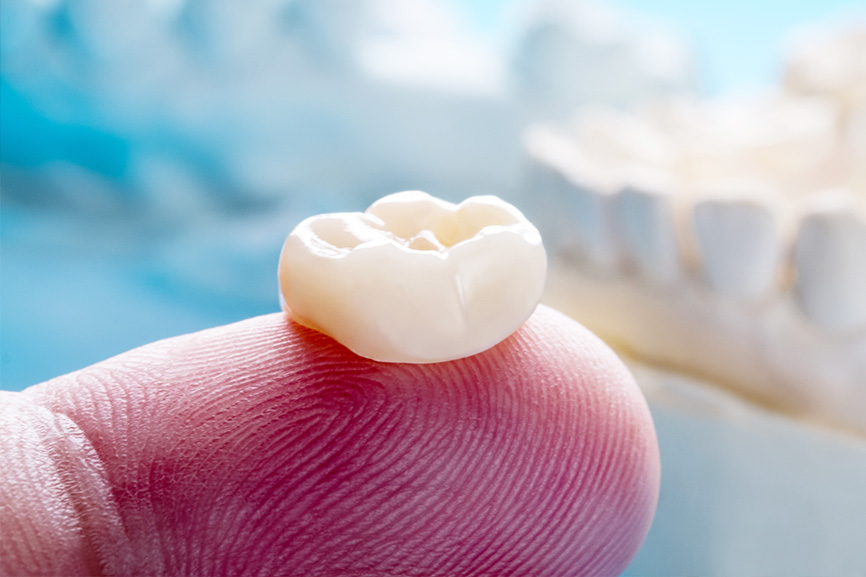Dental crowns are a great way to restore and protect damaged teeth. Whether you have one crown due to decay, a fracture, or a root canal, a crown helps strengthen your tooth and keep your smile looking naturally beautiful. But how long do dental crowns last? Longevity depends on a few factors, such as the material used, oral hygiene habits, and daily wear and tear.
Read on to discover what affects a crown’s lifespan and how you can help it last as long as possible!
Lifespan of Dental Crowns
According to the National Library of Medicine (NLM), 95% of dental crowns will stay in a patient’s mouth for at least five years. Less is known about longer-term survival; however, the NLM indicates that survival at 15 to 20 years varies between 50 and 80%.
What Affects A Crown’s Longevity?
Consistent oral hygiene and conscientious habits are essential to preserving the longevity of your dental crown. To prevent decay around the crown, the American Dental Association (ADA) stresses the significance of brushing your teeth twice a day and flossing once a day. Here’s what can impact your restoration’s lifespan:
- Crown Material: The durability of different crown materials varies. All-ceramic crowns, for example, have demonstrated short-term survival rates between 69.8% and 100%, according to the Canadian Agency for Drugs and Technologies in Health.
- Tooth Vitality: The European Journal of Oral Sciences (EJOS) has found crowns placed on non-vital (root canal-treated) teeth may be more likely to fail than crowns on vital teeth.
- Patient Behavior: Excessive force from parafunctional behaviors such as bruxism (teeth grinding) can raise the risk of crown failure, according to the EJOS.
- Tooth Position: Because of variations in functional load and accessibility for oral hygiene, the EJOS states crowns on anterior (front) teeth may have lower survival rates than those on posterior (back) teeth.
- Oral Hygiene and Diet: The NLM reports that secondary caries, a common cause of crown failure, can result from poor oral hygiene and dietary practices.
How To Preserve Your Restoration
Use these easy suggestions to make the most of your crown and maintain its beauty for many years to come:
Sports Mouthguard: A custom mouthguard can shield your crown from excessive pressure or impact if you play contact sports. Ask our friendly dental team about our personalized sports mouthguards to see how they can help.
Schedule Regular Appointments: Maintain your appointments. During these examinations, our dentist will check on your crown to ensure it is still in place and operating as intended.
Address Pain and Discomfort: Take care of any discomfort right away. See our dentist immediately if you experience pain, sensitivity, or a loose-fitting crown before it becomes a more serious problem.
Dental crowns are a dependable and long-lasting way to restore damaged teeth, but how well you care for them will determine how long they last. Contact our devoted team today to get started!

 INSURANCE BENEFITS BEFORE THE END OF THE YEAR. IF YOU DON’T USE IT, YOU LOSE IT!
INSURANCE BENEFITS BEFORE THE END OF THE YEAR. IF YOU DON’T USE IT, YOU LOSE IT! 